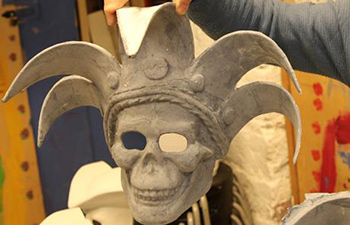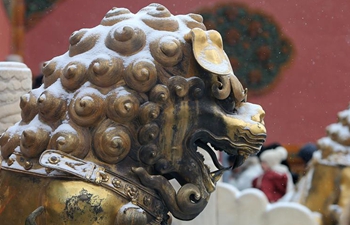SYDNEY, Feb. 20 (Xinhua) -- New research has shown that hunting monkeys in the rainforests of Sri Lanka helped our early ancestors to populate the region 45,000 years ago.
The international study, released on Tuesday, showed the cut and burnt remains of small mammals, including primates, as well sophisticated bone and stone tools found at the oldest Homo Sapien rainforest site uncovered outside of Africa -- the Fa-Hien Lena Cave.
The findings represent the oldest record of sophisticated primate hunting by foragers and provide a better understanding of how people were able to inhabit extreme rainforest environments such as in Sri Lanka.
Analysing the bone and tooth fossils was Dr Michelle Langley from the Australian Research Centre for Human Evolution and Griffith University.
"Being able to adapt your behaviour to tackle the extreme challenges of rainforest environments demonstrates just how flexible our species is," Langley said.
"Capturing swift and elusive animals like tree-dwelling monkeys and squirrels aided in the rapid colonization of this extreme environment outside of Africa, which was apparently untouched by other hominins."
The items found at the cave include small bones, pointed at both ends, consistent with weapon tips used to hunt monkeys, as well as a monkey canine tooth which had been intentionally flaked into a sharp pointed tool used for piercing or cutting.
"A rainforest environment is often regarded as a harsh one for humans to thrive in -- there's disease, dangerous animals, limited resources. And the small, fast animals that are there are difficult to catch," Langley said.
"So, finding evidence for humans existing at the site over tens of thousands of years is a revelation in itself, let alone finding tools that were designed perfectly for hunting these small, swift animals."
The study also included researchers from Sri Lanka's University of Sri Jayewardenepura, Oxford University, the University of Queensland, the University of London, University of Stirling, University of Edinburgh, and the Smithsonian Institution.













